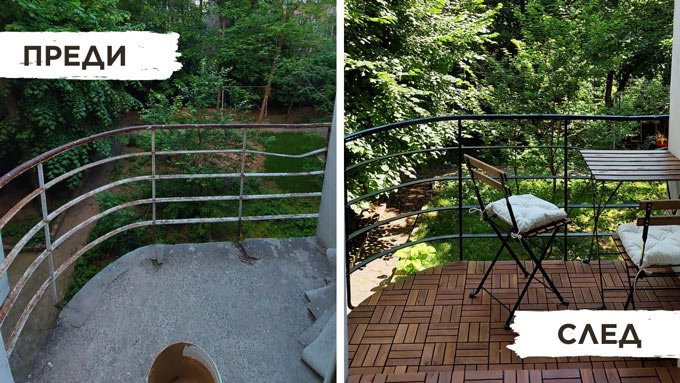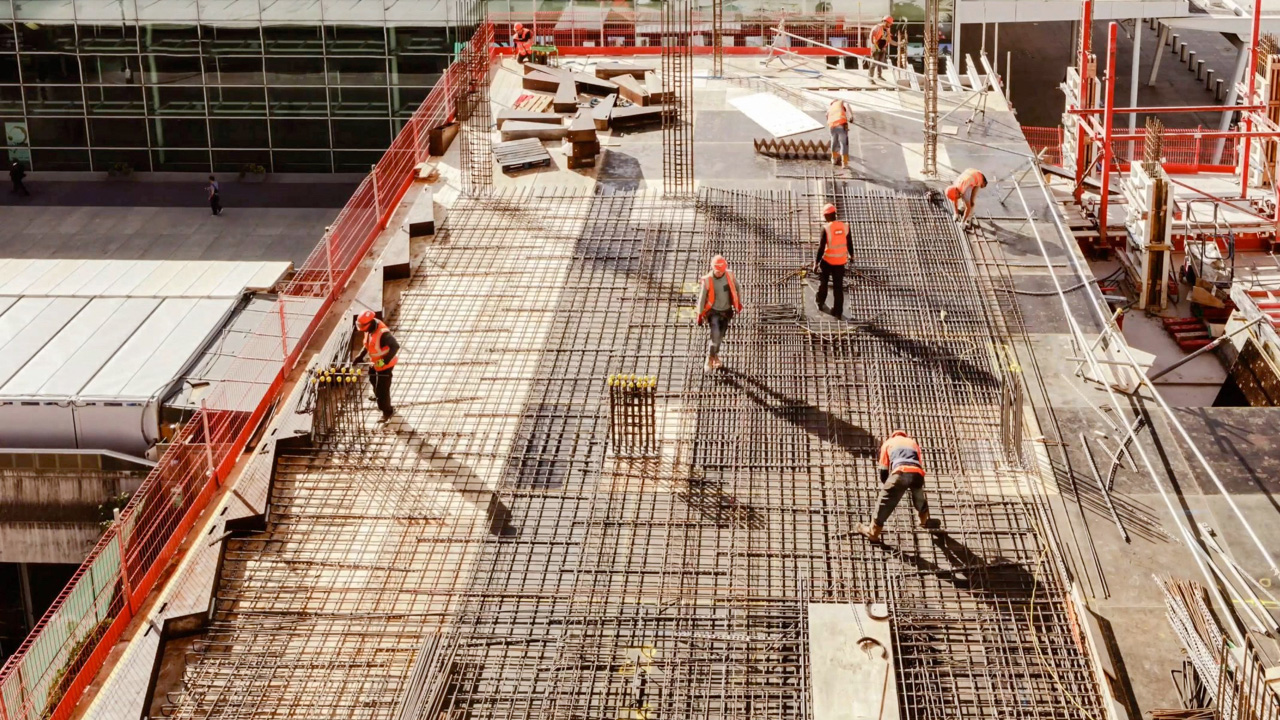Description
Today we will present to you a project to add years of new life to an old terrace of a block in the heart of the capital, built way back in 1935.
The history of this old but beautiful building has been marked by many events, including the bombings during the Second World War, which completely destroyed the neighboring block built on a shield.
Nearly a century later, one of the block's terraces needs to be repaired. Although the floor terraces are one above the other, given the high ceilings and the lack of additional canopies, the concrete remains unprotected and in constant contact with rainwater that seeps into the cracks through the surface.
The cyclic processes of freezing and thawing, combined with the expanding rust of the corroded metal railing, have a destructive effect on the mosaic concrete covering of the terrace.
Before the repair:
• The concrete on the terrace is destroyed due to water ingress.
• Cycles of freezing and thawing have caused cracks to widen and entire pieces of the mosaic to break off.
• The handrail corrodes and contributes to the failure of the concrete in the grip zones.
The purpose of the repair:
• To restore the integrity of the concrete terrace.
• To protect against future destruction.
• To improve the aesthetic appearance of the terrace.
In the following sections we will look at:
• The stages of repair.
• Materials and techniques used.
• Achieved results.
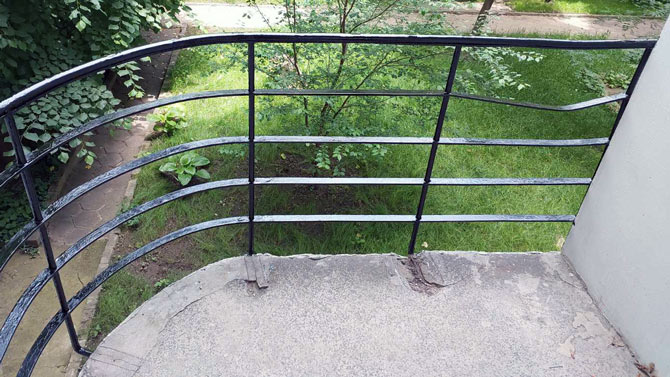
1. The first step is to remove the crumbling parts and cut out the compromised concrete around the corroded metal elements.
2. Treatment of the cracked mosaic with a deep-penetrating hydrophobic impregnator Protectosil® CIT, containing an organo-functional molecule, which reduces the corrosion current below the safe 200 mA for the development of corrosion in steel.
3. Using a syringe and needle, fill all cracks with epoxy resin.
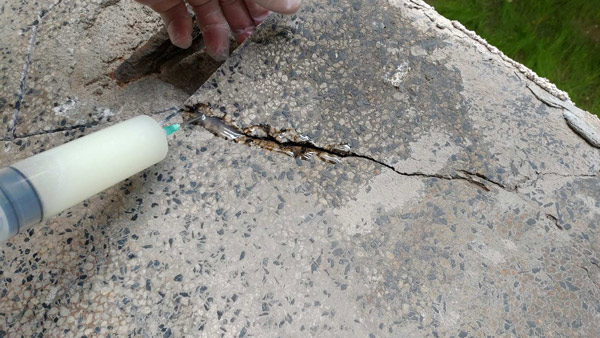 |
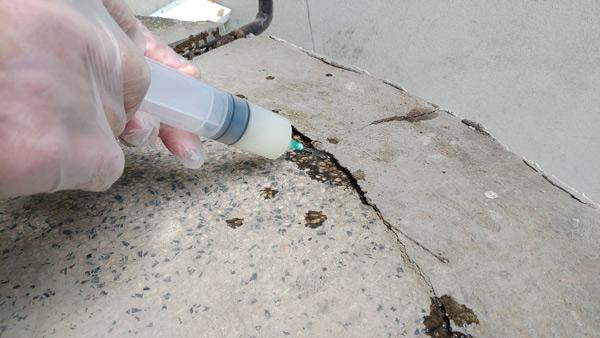 |
4. Prime the corroded elements and the concrete around them with epoxy resin in order to ensure better adhesion with the Pavifix repair solution.
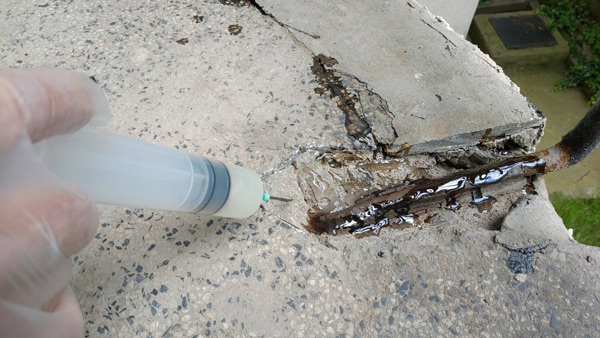 |
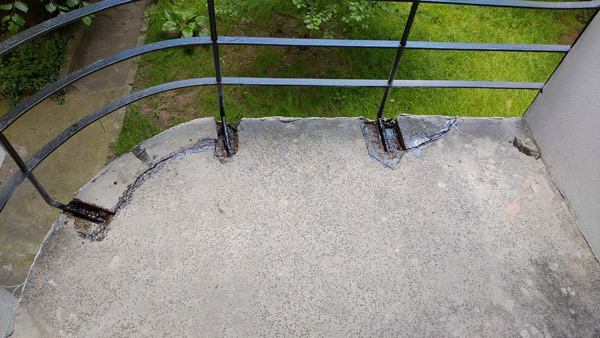 |
5. Filling all holes in the concrete with the solution for local repair of concrete pavements Pavifix.
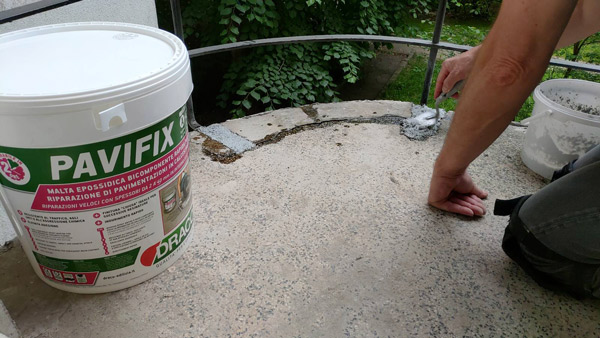 |
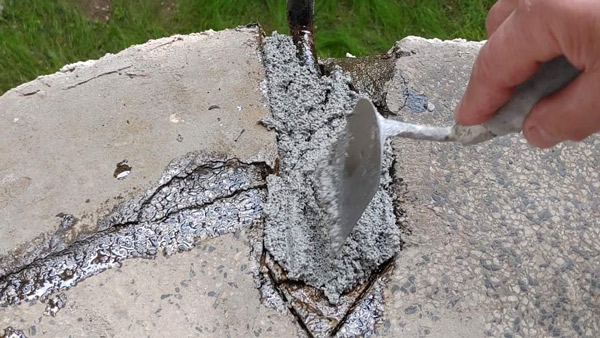 |
6. Installation of decking on the repaired concrete pavement.
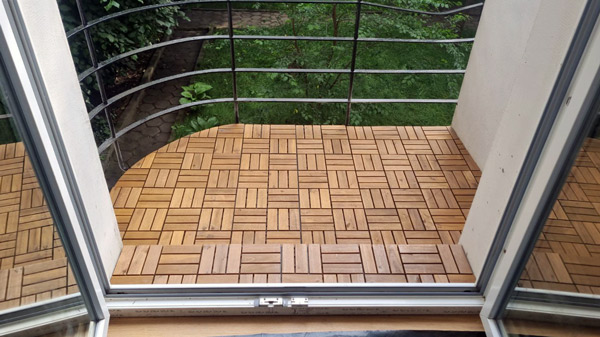 |
7. Impregnation of the decking with SiloTreat® WOOD
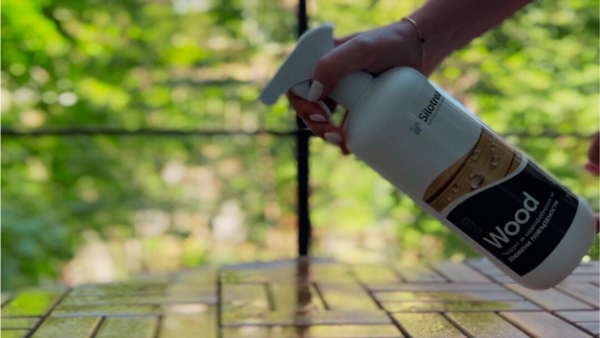 |
8. The effect of SiloTreat® WOOD decking protected with impregnation
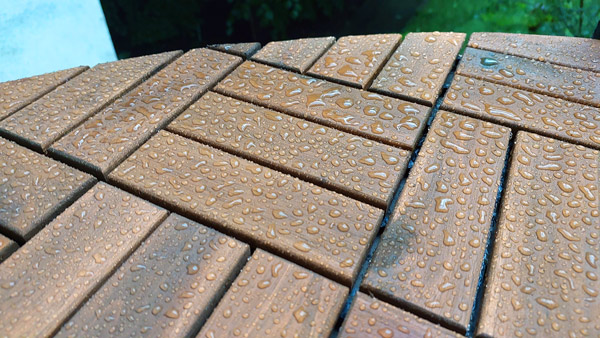 |

